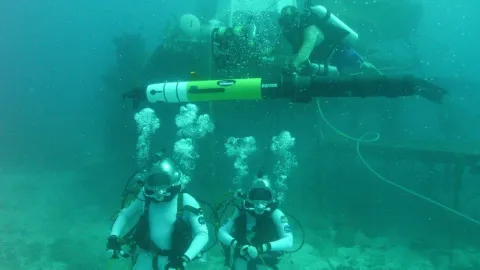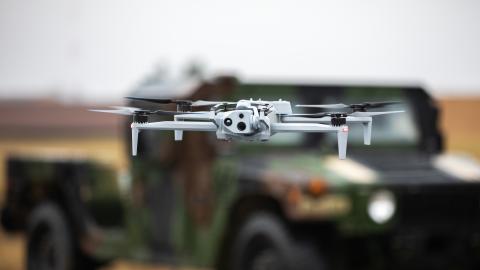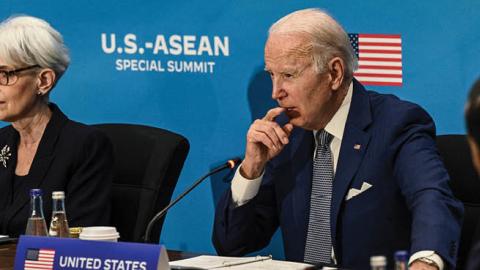As attention pivots to President Joe Biden's visits to Seoul and Tokyo and the launch of his signature economic framework, the contributions of ASEAN and its recent Washington summit should not be overlooked.
Whatever else the ASEAN-U.S. special summit was, it was profoundly ordinary. Yet it was the matter-of-fact nature in which Mr. Biden went about for the first time hosting his South-east Asian counterparts at the White House that provided a glimmer of diplomatic normalcy in an age of upheaval and rivalry. More importantly, the summit laid a sturdy foundation on which Mr. Biden can now hoist the economic pillar of his regional strategy.
The summit's quiet stability had all the hallmarks of a program orchestrated by someone skilled at political juggling while avoiding the spotlight: President Joko Widodo was indispensable and his effort should go some way towards deepening Indonesian-U.S. relations. Equally valuable was the critical advance visit to the White House by Prime Minister Lee Hsien Loong six weeks before the ASEAN-U.S. summit.
The main headlines to emerge evinced a mood of serenity, not the herky-jerky commotion that can accompany American policymakers seeking to impress on domestic and foreign audiences that the United States remains a formidable force for good in the world.
The summit underwhelmed some commentators. But America's relations with South-east Asia are best when officials break bread, not news, and when taboo subjects are discussed behind closed doors rather than aired in public.
Reality not mythology
That said, give critics of the ASEAN-U.S. summit their due. There is legitimate cause for concern.
It is simple to praise ASEAN but can an institution marked by such pervasive indifference to Russian aggression, unable to conclude a code of conduct for the South China Sea, and helpless in holding Myanmar's junta accountable for instigating civil war serve as the fulcrum on which the region operates?
It is also easy to praise America's latest effort to place priority on the Indo-Pacific region without swallowing the narrative of primacy or predictability. Bipartisan support for standing up to China is not quite the same as an ironclad commitment to upholding the international order, including the global trading system, or mean that resources will swiftly and generously follow pronouncements made by the executive branch.
Yet it was not through these rose-tinted lenses that most viewed the ASEAN-U.S. summit in Washington. Instead, it was the general impression created by the images of eight ASEAN leaders and the foreign minister of the Philippines in constructive dialogue with senior administration officials, members of Congress and business executives that dominated the two-day event.
Sceptics have grounds to critique the summit for its triumph of symbolism over action and for a joint vision statement enumerating principles and activities that don't quite add up to a shared strategy. Nonetheless, there has been an overall stabilizing quality to America's engagement with ASEAN over the decades; and throughout the 45-year history of ASEAN, there has been a pattern of ASEAN-U.S. rule-building. That is why the summiteers in Washington emphasized their common adherence to values and norms enshrined in the Charter of the United Nations, the ASEAN Charter, the Treaty of Amity and Cooperation, the UN Convention on the Law of the Sea, and other landmark documents.
This is not to say that all leaders present - and certainly not the leadership in Naypyidaw that was deliberately left off the invitation list - hew to all these principles. Some Americans were irked about seeing Cambodian flags flying in Washington. Yet the announcement that relations would be upgraded to a "comprehensive strategic partnership" at the 10th ASEAN-U.S. summit this November is the logical next step in the progression of stronger US ties with South-east Asia.
Governments employ superlatives such as "special" to give support for diplomatic envoys, partnerships and meetings. There is nothing wrong with that and public opinion is well attuned to state-sponsored boosterism. I wish I could report that passions ran high in the U.S. after ASEAN leaders flew home, but that would only be true if I referred to shortages of infant baby formula, the tussle between pro-choice and pro-life movements, inflation and Mr. Elon Musk's bid to acquire Twitter.
Slow But Steady
Working to establish slow but steady progress can be a thankless task. If power plays and black swan events don't upend a government's plans, then there's always social media to pick apart rational policy and diplomatic discourse.
Discussing the pandemic, clean energy and high-standard infrastructure is not as attention-grabbing as lecturing Mr. Vladimir Putin or Mr. Xi Jinping. However, practical dialogue is apt to help more people in South-east Asia and America than shouting in the global public square.
There is a time and place for speaking plainly about hard power. For example, U.S. Secretary of Defense Lloyd Austin should use the upcoming Shangri-La Dialogue to make an emphatic statement about America's commitment to peace and security. Even if the bulk of what he says accentuates the positive tone set by the ASEAN-U.S. summit, combined with the momentum for a new economic framework, a few choice words about attempts to change the status quo through the use of force or coercion can also contribute to regional order.
The same might be said of further cooperation over maritime security. Dispatching the US Coast Guard to help make even a modest contribution to halting the pernicious problem of illegal, unreported and unregulated fishing can only contribute to the public good. Similarly, promoting the Mekong-US partnership remains the right thing to do and also connects continental and maritime South-east Asia with US interests on land and sea.
When Mr. Biden named a close adviser, Mr. Yohannes Abraham, to fill the long overdue vacancy for America's envoy to ASEAN, he made the mission of inching forward towards binding ASEAN and the US over time a personal statement.
The Biden administration also has set a new tone of respect and consideration for South-east Asia. For careful observers of US foreign policy, one could detect not so much a new era of relations as a fresh air of cooperation in how America comports itself. Contrast the image of a spry 79-year-old Mr. Biden helping a counterpart down from the raised dais used for the group photo with a picture of his predecessor elbowing his way past the Prime Minister of Montenegro at a NATO summit in Brussels. The contrast lends credibility to the "principles of equality, partnership, consultation and mutual respect" to which the leaders affixed their names at the White House earlier this month.
Indeed, the special quality of the ASEAN-U.S. summit was its ordinariness, predictability and lack of controversy. Those are three qualities in short supply in a world buffeted by pandemic disease, economic volatility, dogmatic ideology, disruptive technology and major-power competition.
Regional architecture and good governance work best when the system functions well without the heavy hand of the authority having to call attention to itself, except in true emergencies. So, too, is the case with high-level diplomacy.
New Era Ahead
South-east Asia and the wider region need ASEAN-centred institutions, of which the dialogue with the US constitutes one strand. The U.S. is often accused of bypassing ASEAN, and ASEAN is frequently blamed for lowest-common-denominator decision-making. The constant footsteps of progress are commonly missed amid the finger-pointing, especially in the choreography of politicians who know how to share a stage.
There is an unquantifiable but significant benefit from deepening personal relations among leaders and ensuring South-east Asian leaders have a better sense of the political challenges facing any occupant in the White House. Much of these emotional ties are translated into deeper trust and rapport, mainly bilaterally.
The inaugural joint US-Thailand Strategic and Defense Dialogue held before the ASEAN-U.S. summit afforded a golden opportunity for repairing America's alliance with Bangkok, still ailing from the 2014 coup. America's diplomatic pragmatism was also amply on display, whether in the warm congratulatory words for the newly elected president of the Philippines or in welcoming Cambodia's Prime Minister Hun Sen to the White House. The latter action perfectly sets the scene for when Mr. Biden can officially declare the elevation of ASEAN-U.S. relations in Phnom Penh this November.
His meetings in North-east Asia may now be the catalyst for shifting ASEAN-U.S. relations into a higher gear. Major support for the Biden administration's new Indo-Pacific Economic Framework can give form to the missing or at least amorphous economic dimension of U.S. policy - a policy left floundering since previous political leaders of both parties turned against the Trans-Pacific Partnership.
An inclusive and comprehensive Indo-Pacific Economic Framework governing rules of the road for the future economy, supplemented by activities such as ASEAN-U.S. educational and training exchanges, can accelerate integration of the regional economy for the benefit of all. That integration, in turn, helps to assure that America's longstanding balancing role will continue too.
ASEAN may not be the center of U.S. Indo-Pacific strategy, but it can provide the brackets that frame its boundaries and hug its core constituents. The first bracket was provided by the stability of the ASEAN-U.S. special summit, a vital prelude to America's rediscovery of the economic dimension of policy. In November, ASEAN's capstone events can place the second bracket, which will highlight the essential need for a free and open Indo-Pacific, also to be inclusive.
If all goes well, Mr. Biden's trip to Cambodia and South-east Asia can connect the dots between an inaugural ASEAN-U.S. summit and a surprising degree of reciprocity, respect and pragmatism in the conduct of relations. Maybe a new era of relations awaits after all.
Read in The Straits Times















